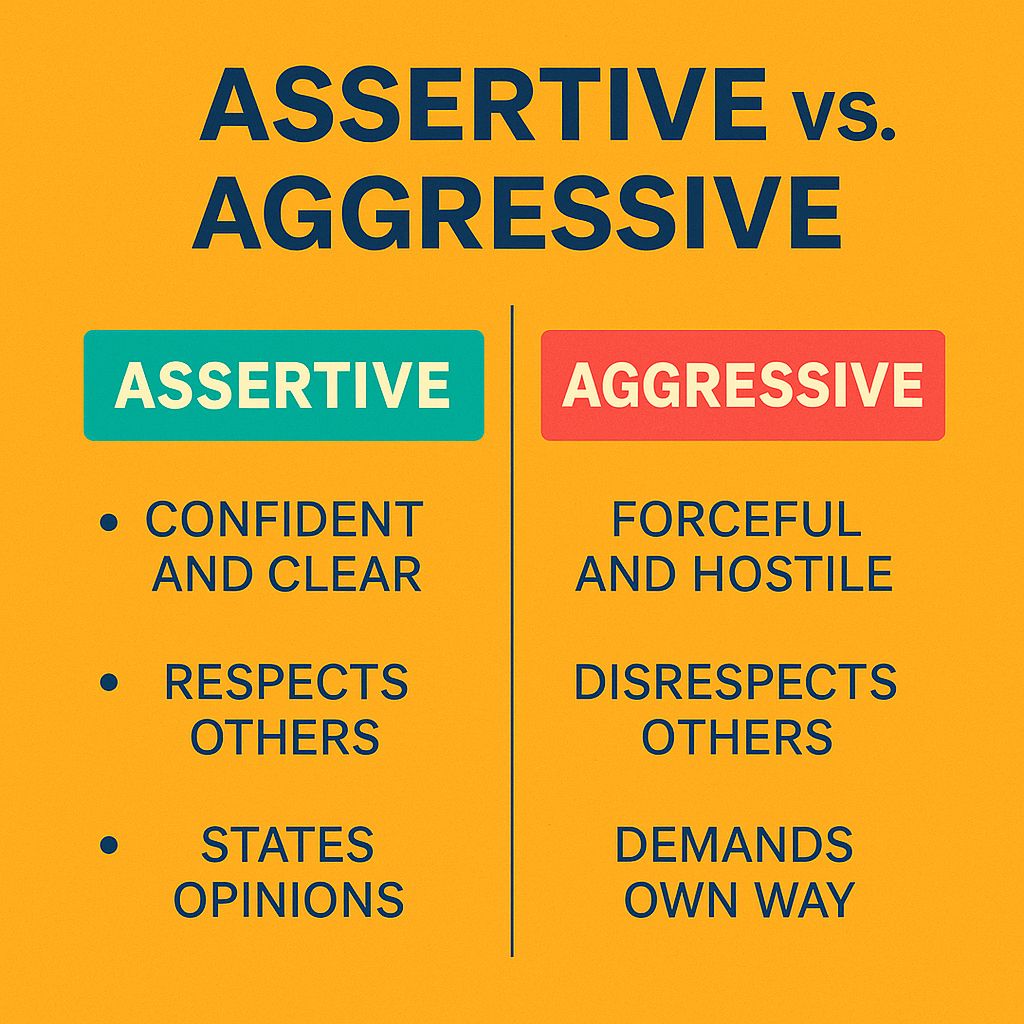There’s a fine line between speaking up for yourself and speaking over someone else. That line is the difference between being assertive and being aggressive—and knowing the difference can transform your relationships, your leadership, and your impact.
Aggressive communication is fueled by the desire to win—at all costs. It often shows up as:
- Interrupting
- Talking over others
- Using blame or “you always…” language
- Dominating conversations
- Raising your voice to get attention
Aggressive people might get short-term results, but they leave a trail of hurt feelings, lost trust, and disengaged teams in their wake. Assertive communication, on the other hand, is about expressing your needs, desires, and boundaries with confidence and respect. It sounds like:
- “I feel frustrated when deadlines are missed. Can we talk about what’s getting in the way?”
- I disagree, and here’s why.”
- “I’m not available tonight, but I’m free tomorrow afternoon.”
Assertiveness is clarity with kindness. It’s courage without cruelty. It’s choosing directness without disrespect.
Assertiveness isn’t just a “nice to have.” It’s an essential skill if you want to:
- Be heard without bulldozing others
- Build mutual respect in relationships
- Model healthy communication for your teams and kids • Set clear boundaries without apology
- Navigate conflict without drama
Leaders who are assertive create space for others to speak, while also making sure their own voice is heard. They show that confidence doesn’t have to be loud—and strength doesn’t have to be forceful.
Assertiveness is a front-row skill. It’s about showing up fully present, engaged, and owning your space. Not elbowing your way forward or hiding in the shadows but confidently taking your seat at the table. That’s front-row living.
Try This Today:
Here are three ways to practice assertive communication right now:
- Use “I” Statements – Start with how you feel or what you need, instead of blaming or accusing.
- Set a Clear Boundary – Say no to something that drains your energy or doesn’t align with your values.
- Speak Up with Kindness – Disagree respectfully in a meeting or share a truth that’s been weighing on you.
Final Thought: You don’t have to yell to be heard. You don’t have to be mean to be strong. You don’t have to silence yourself to keep the peace.
Assertiveness is your permission slip to speak up with heart and conviction. So today, take a front-row seat in your own life—and speak from it with clarity, courage, and compassion.
Your Head Usher,
Marilyn





